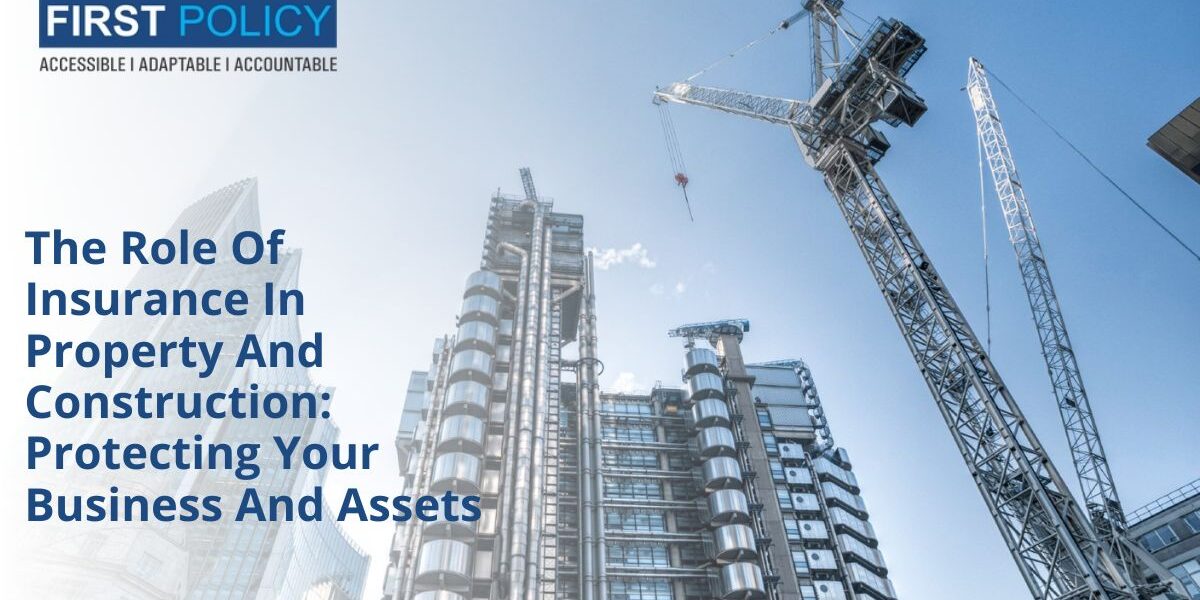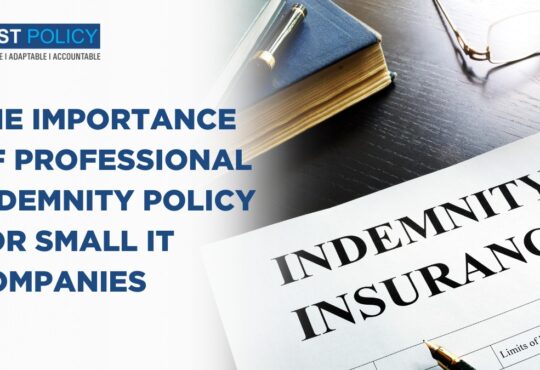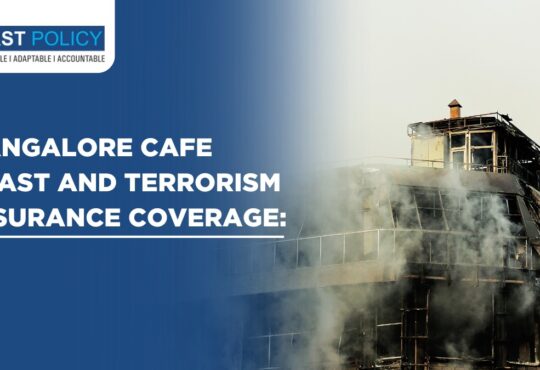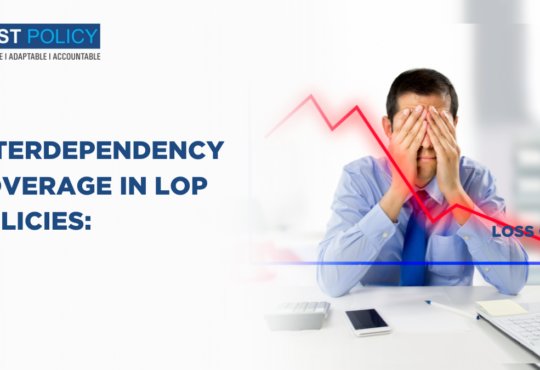
The Role Of Insurance In Property And Construction: Protecting Your Business And Assets
The property and construction industry is well-known for its inherent risks and uncertainties. This sector faces various challenges, including natural disasters, accidents, legal disputes, and project delays. To safeguard their businesses and assets, professionals in this industry rely on insurance coverage. In this article, we will delve into the vital role of insurance in property and construction. We will discuss the different types of insurance available, highlight the benefits for small businesses, offer considerations for selecting suitable coverage options, and emphasize the significance of risk management through property insurance.
Types Of Insurance That Can Be Used In Property And Construction Fields
Below is a list of essential types of insurance for property and construction projects that will help you protect your location in both the present and future –
- General Liability Insurance: General Liability Insurance is important for businesses in the property and construction industry. It serves as a foundational coverage, safeguarding against claims of third-party bodily injury or property damage. Consider this scenario: Should a client or visitor sustain an injury on a construction site, this insurance offers comprehensive coverage encompassing medical expenses, legal fees, and potential settlements.
- Workers’ Compensation Insurance: Workers’ Compensation Insurance is crucial for construction companies employing workers. It ensures coverage for medical expenses and lost wages, serving as protection when employees sustain job-related injuries. Adherence to workers’ compensation laws is not only legally mandated in many jurisdictions but also plays a vital role in safeguarding the welfare of the workforce.
- Construction all risk: Builder’s Risk Insurance: Builder’s Risk Insurance, also known as course of construction all risk insurance. It offers protection for properties undergoing construction or renovation. This type of insurance safeguards against damage to the structure, materials, and equipment caused by events like fire, vandalism, or theft during construction.
- Professional Liability Insurance: Architects, engineers, and other professionals in the construction industry rely on professional liability insurance to protect themselves against claims of negligence, errors, or omissions. Also known as errors and omissions insurance, this coverage plays a vital role in safeguarding professionals during legal disputes related to their design or planning processes. It ensures that they are adequately covered and can navigate potential challenges with confidence.
- Property Insurance: A type of coverage that offers comprehensive protection for owned or rented structures and their contents. It safeguards against various perils such as fire, theft, vandalism, and natural disasters. Furthermore, property insurance can be tailored to meet the specific requirements of construction businesses.
- Commercial Auto Insurance: Commercial Auto Insurance is crucial for construction businesses that rely on vehicles for transporting materials, equipment, and employees. This insurance covers accidents and damage to company vehicles, providing financial security in case of unforeseen incidents.
- Directors and officers Insurance: Directors and Officers Insurance, commonly known as D&O insurance, provides vital protection to company executives by shielding them from personal financial liability in the event of legal proceedings arising from their managerial decisions or actions while serving on the board or as officers. This safeguard is crucial for corporate leaders.
Benefits Of Construction Insurance For Small Businesses
Small businesses operating in the property and construction industry often encounter unique challenges. The inherent limitations of resources and budgets can exacerbate the impact of unforeseen incidents, causing even greater disruptions. Following is a list of some crucial benefits of construction insurance for small businesses that people should consider before thinking about purchasing them:
- Reducing Risks: Construction work poses significant risks, with an accident potentially closing your company overnight. By investing in appropriate insurance policies, businesses can reduce their financial risks and protect themselves against catastrophic losses.
- Maintaining Compliance With Legal Requirements: One of the key benefits of having adequate insurance for any business is helping ensure compliance with various legal requirements, such as contractual obligations, building codes, insurance and bonding requirements, credit checks, background checks, payroll requirements, lien requirements, and more.
- Improvement Of Financial Stability: Construction businesses face various financial risks. Construction insurance helps offset these threats, helping ensure its stability.
An experienced construction insurance agent can assist small businesses in identifying their coverage requirements. Aside from business owner policies, contractors may also need general liability, builders risk, workers’ compensation, and commercial auto policies. Their cost will depend on factors like project type and claims history of their previous claims history. - Building Trust: Construction projects can be extremely hazardous, exposing businesses and investors to potential hazards. With adequate insurance policies in place, however, these risks can be managed to safeguard invested parties against financial liability.
- Attract Talent: Small businesses are finding it increasingly challenging to attract top talent due to The Great Resignation, where workers increasingly leave their current roles for better pay, benefits, and work-life balance than ever before.
Choosing The Right Insurance Coverage For Your Construction Project
In the construction industry, insurance is essential since it acts as a safety net to reduce unforeseen risks and safeguard stakeholders. It is crucial to choose the appropriate insurance coverage for your construction project. Below are the points that will help you in choosing the right insurance coverage for your construction project:
- Project Size And Difficulty: When choosing insurance coverage for your construction project, it is essential to consider the size and difficulty of the project. Larger and more complex projects require comprehensive insurance packages that provide broader coverage. These kinds of projects can include skyscrapers, major infrastructure developments, or intricate architectural designs. On the other hand, smaller projects with less complexity may only need basic insurance packages.
- A comprehensive risk assessment specific to your project is crucial. Understanding the potential challenges and vulnerabilities that come with its size and complexity is vital. It is important to customize your insurance coverage to address these unique aspects.
- Construction Business Size And Type: The size and type of your construction business play a crucial role in selecting insurance. Different insurance options may be more suitable depending on whether your business is a sole proprietorship, small construction firm, or large corporation. These options include general liability, professional liability, or contractor’s all-risk insurance policies. Additionally, smaller businesses might consider owner-controlled insurance programs (OCIP) or contractor-controlled insurance programs (CCIP) for more budget-friendly coverage.
- Legal Requirements: Local and national regulations often establish specific insurance criteria for construction projects. These legal requirements are mandatory and must be fulfilled to ensure compliance with the law. Failure to meet these obligations can result in significant consequences, including project delays, financial penalties, and legal repercussions.
- Specific Requirements Under a Contract: Contracts often include insurance requirements for clients, subcontractors, or other stakeholders. It is crucial to carefully review and address these contractual obligations in your insurance coverage to mitigate the risk of breaching the contract and potential legal disputes.
- Risk Exposure and Potential Dangers: Exposure to Risks and Understanding Potential Dangers: It is crucial to have a comprehensive understanding of the specific risks associated with your construction project when selecting appropriate insurance coverage. Consider potential hazards like natural disasters, accidents, design flaws, and the use of hazardous materials. Ensure that your insurance is tailored to sufficiently cover these risks.
Risk Management Through Property Insurance
Regardless of the size or purpose of a construction project, unforeseen events, and damages are inevitable. Therefore, it becomes crucial to know how to protect your business assets with insurance and how insurance can safeguard your construction endeavors. Construction sites are vulnerable to various risks, including equipment damage, structural flaws, and environmental factors. While these risks cannot be completely avoided, insurance plays a vital role in mitigating them and ensuring sufficient coverage.
Risk management involves several key components. First, it requires identifying and assessing potential hazards. Second, it entails collaborative efforts within and beyond the construction organization to address these risks. Third, monitoring of loss prevention measures and financial resources is crucial. Finally, implementing risk elimination or control strategies is necessary. This comprehensive approach also includes utilizing insurance policies specifically designed to protect against losses when prevention measures become economically unfeasible.
CAR insurance, also known as Construction Risk insurance, is a valuable tool for managing risks in construction projects. By securing policies that cover a wide range of potential hazards, you can safeguard against losses resulting from incidents like fires, floods, tornadoes, thefts, or damages to equipment and structures on the project site. Including CAR insurance in your construction budget is crucial to ensure comprehensive protection throughout your project.
Any department seeking to insure against specific risks should meet with their Director of Risk Management to discuss their options. If insurance is the most cost-effective approach, their risk manager will negotiate with an insurer and bill the department directly; the cost will be included in its general liability budget. When purchasing insurance policies, departments should obtain copies of contracts, work orders, purchase requisitions, and transportation bills that pertain to each item insured in their policy.
GIVE A CASE LAW
In the unfortunate event of Akhilesh Devta Kumar’s fatal fall at a construction site in Warje, the significance of property and construction insurance is made evident. A notable case highlighting this importance is “Phoenix Assurance Co. Ltd. v. Oriental Goverment Security Life Assurance Co. Ltd.” This influential ruling by the House of Lords in the UK stresses the indispensability of insurance within the construction industry.
In this particular case, it has been established that having property and construction insurance is crucial. Such coverage serves to protect against unforeseen accidents and liabilities, including the tragic incident mentioned earlier. By obtaining this insurance, not only are the financial interests of construction companies safeguarded, but also the implementation of adequate safety measures, equipment, and precautions are ensured to prevent accidents and prioritize the well-being of workers. Failure to provide such insurance and safety measures can result in legal consequences, as exemplified by the ongoing charges for negligence faced by both the construction firm owner and contractor under section 304(a) of the Indian Penal Code (IPC).
The referenced case law highlights how important property and construction insurance are to ensuring safety and responsibility in the building sector and, eventually, averting tragedies such as the one that occurred in Warje.
Conclusion
Several factors on a building site could cause future accidents, and if they are serious, your company could be in danger. Therefore, having a strong property and construction insurance foundation will always make it easier to maintain your firm secure and operating normally.





